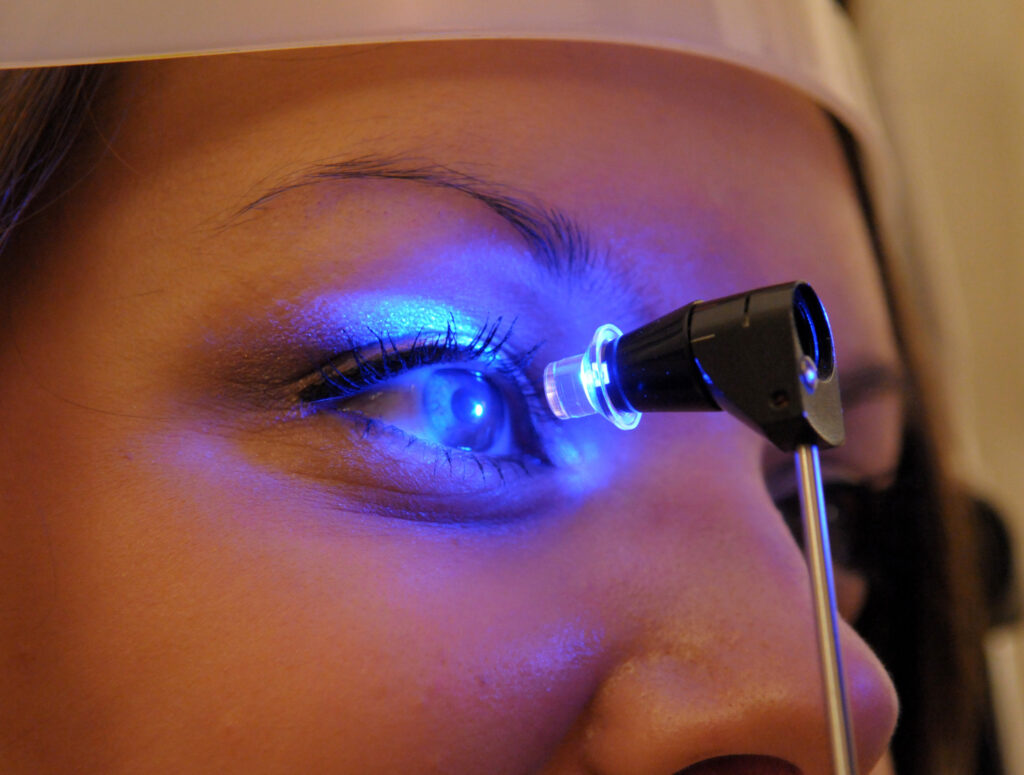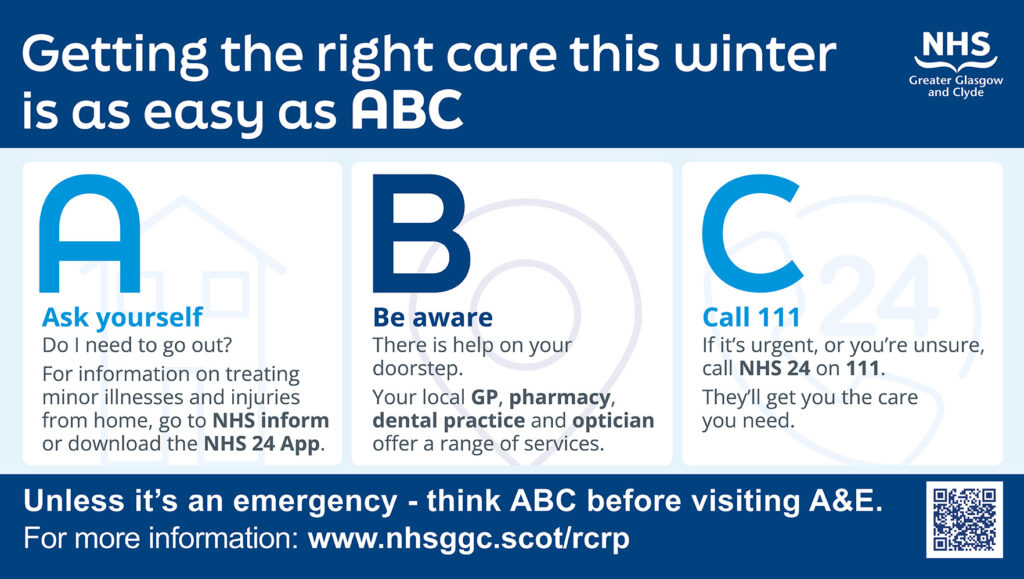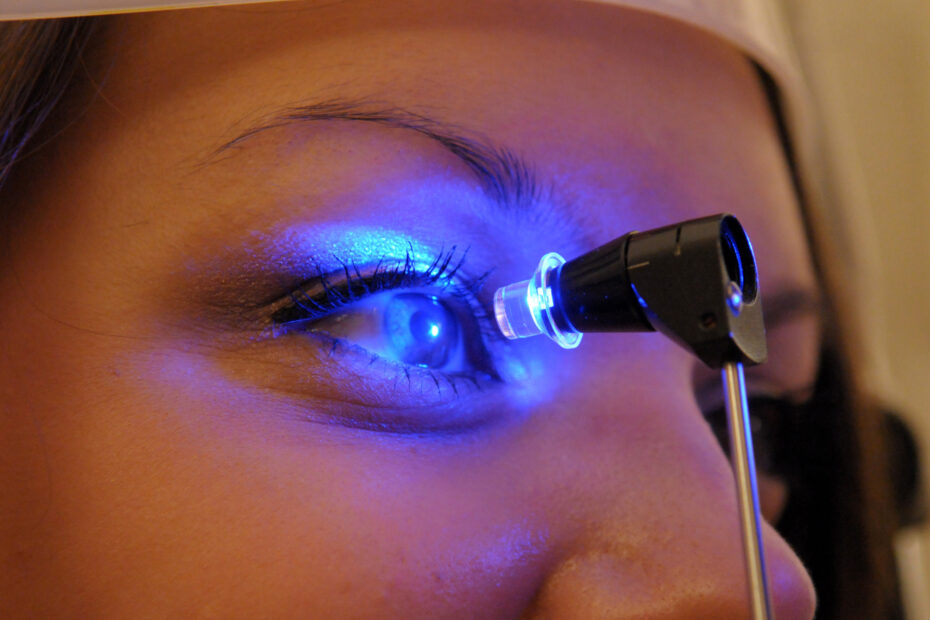
As winter pressures build up across the NHS in Scotland, NHS Greater Glasgow and Clyde is reminding people that A&E is not the best place to go for the majority of eye-related health problems.
Many people think an optician is nothing more than a place to go and get an eye test and glasses or contact lenses, but they offer much more – and NHSGGC is encouraging people to visit their local optician in the first instance if they have any worries about their eyes or their vision.
As well as having the equipment to carry out a range of health checks and treatments on-site, opticians also have access to NHSGGC’s specialised Acute Referral Centre (ARC) – a service that can see patients and treat their conditions often within 24 hours.
The ARC is based at the Ophthalmology Department at Gartnavel General Hospital (GGH), but it also sees patients at Inverclyde Royal Hospital (IRH) and Royal Alexandra Hospital (RAH), ensuring that, where appropriate, people can access acute eye care as close to home as possible.
The service, which operates 9am-5pm Monday to Saturday and provides a 7-day out-of-hours service, has been running for more than 10 years, and latest figures show it sees more than 10,000 patients every year.
Lynne Campbell, Interim Lead Nurse for Ophthalmology at GGH, explained how the service works.
“The ARC provides a very important service, with a team of nurses and doctors, overseen by a consultant, providing care for people with acute eyecare needs who need seen within 48 hours.
“We have a team of nurses operating a phone line which is open to community optometrists. The service receives around 425 calls every week and provides a range of services from prescription advice to triage of patients.
“If it is deemed appropriate that a patient needs seen by our service, they will initially be asked to visit the centre nearest them that same day or sometimes the following day.
“When they arrive they’re seen by a doctor who will then administer appropriate care or direct to them a specialist for treatment. We always try to treat a patient at their local unit if that’s possible.”
In most cases, patients are seen the same day or within 48 hours, and as well as providing treatment and medication, where appropriate patients will be signposted to follow-up care.
Dr Soma Chakrabarti, Co-clinical Director in Ophthalmology at NHS Greater Glasgow and Clyde, said:
“As is the case throughout the country, services within NHSGGC – including ophthalmology services – are facing significant challenges as winter sets in.
“Our staff are doing all they can to ensure people are seen as quickly as possible appropriate to their needs, and we would like to thank them for their continuing hard work and professionalism.
“However, we are also asking anyone who needs help to think carefully about how they access our services.
“The ARC is one of the clearest illustrations of how knowing where best to access care can get you seen and treated more quickly – in this case even within 24 hours.
“So if you think you have an eyecare need, remember your local optometrist is there for more than a new pair of glasses. They have the right equipment to make informed choices and referrals and sometimes prescribe medicines, and when linked with the highly skilled team here at ARC, that’s only of benefit to patients.”
This winter, NHS Greater Glasgow and Clyde is running its annual campaign providing lots of information to help people access care in a way most appropriate for their needs.

Recent figures show that nearly two-thirds of people who self-refer to our A&E departments could get help more quickly and easily elsewhere, and so we are encouraging people to remember some simple advice. In fact, accessing the right care is as easy as ABC:
Ask yourself: Do I need to go out? For information on keeping yourself well and treating minor illnesses and injuries from home, go to NHS Inform or download the NHS24 app.
Be aware: There is help for many conditions right on your doorstep. Your local GP, pharmacy, dentist or optician offer a range of services.
Call 111: If it’s urgent, or you’re not sure, call NHS24 on 111. They’ll make sure you get the help you need.
If a condition is life-threatening, we would always encourage people to go to A&E or call 999, but in all other circumstances, please think ABC before going to A&E.
For more information on accessing the care you need this winter, please go to: Right Care, Right Place – NHSGGC

